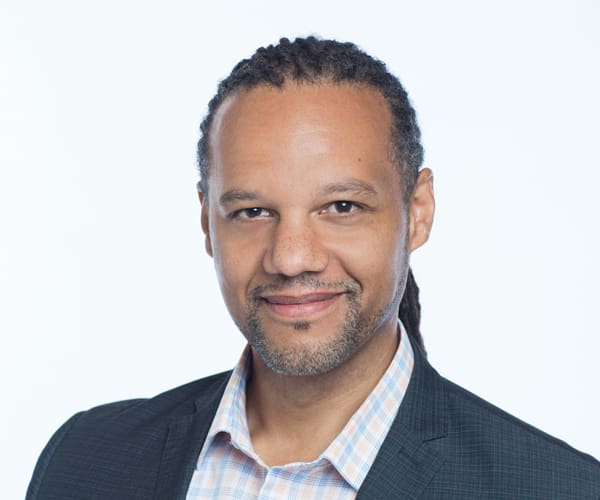
If you’re like a lot of landscape business owners, then you might be struggling to figure out how to bridge the generation gap when hiring.
Whether you’ve already hired new young people—or you’re just looking to attract more of them to your business—then you may have already noticed that there seems to be a disconnect between age groups when it comes to getting business done. The difference in the way each generation thinks—and acts—can be quite significant.
That disconnect is where BridgeWorks comes in. BridgeWorks is a team of speakers, consultants and generation experts that, put simply, aim to “bridge the gap” between generations.

Among those experts is Phil Gwoke, an internationally recognized speaker, who will be the CEO Forum speaker at LANDSCAPES this year.
Gwoke has spoken at events for many industries but says most are facing the same issues when hiring future leaders.
“One thing I know a lot of landscape businesses are looking at right now is how to attract and retain the next generation of your workforce and support them in becoming effective leaders,” Gwoke says. “A big challenge businesses are faced with right now is knowledge transfer. How can you pass the wisdom and insight you’ve earned on to the next generation? That’s our wheelhouse—bringing people from different generations together in a way that makes this feasible. Everyone will walk away with some tools that will help them communicate more effectively with other generations.”
If you’re someone who is looking to better understand how to work with different generations, then this is going to be a presentation you won’t want to miss. We asked Gwoke to share a few of his key lessons on connecting with different generations to provide a small taste of what you’ll learn at this session.
Bridge the Generation Gap Lesson #1: Every Generation Provides Unique Value
While they might be different in a lot of ways, Gwoke says each generation has its own set of experiences and skills that bring value to the table.
For instance, it’s easy to view Millennials (those born 1980 to 1995) and Gen Z (born 1996-2010) as groups made up of people who want everything quickly. They grew up with “technology in their pockets” and can Google anything for information. However, Gwoke says they bring value as “innovators” with fresh ideas. They can possibly bring exciting change to companies that might be getting stale.
Meanwhile, Baby Boomers, who didn’t grow up with technology at their fingertips, had to work hard to get where they are. They developed knowledge and experience over time. Gwoke says they bring value in terms of hard-earned experience and wisdom, which doesn’t happen overnight. It’s so important for each of these generations to start to see the value of the other.
“Everyone who attends will walk away with tools to more effectively communicate their values to another generation,” Gwoke says. “They’ll also walk away with a better understanding that each generation has something valuable to offer.”
Bridge the Generation Gap Lesson #2: Formatives Experiences Shape Values
While there’s often a lot of negativity when one generation speaks of another, Gwoke says it’s important to remember that peoples’ values are often shaped through the circumstances in which they’ve grown up. This is obviously out of their control.
“For instance, in my formative years, nobody was talking about the environment. I didn’t grow up around the Green Movement like younger generations did,” says Gwoke, who is a Gen-Xer (those with a birth year between 1965-1979). “That doesn’t mean we can’t adopt values later in life. But we still must understand the times in which a person grew up. It’s part of who they are. As we aim to understand one another’s values, this is important background information to keep in mind.”
Bridge the Generation Gap Lesson #3: Knowledge Transfer is Hard But Necessary
Another important aspect that Gwoke will cover in his presentation is “knowledge transfer.” That is, the process of passing wisdom and values on to the next generation. After all, you’ve worked hard to make your business what it is—and you want it to carry on.
But Gwoke admits knowledge transfer is very difficult from one generation to the next. It is possibly the most difficult for Baby Boomers who started their businesses in an incredibly competitive era when they had to fight their way to success.
“That generation is likely thinking, ‘I worked so hard and now I have to just give this information away?’” Gwoke says. “But remaining competitive and moving your business forward is going to require you to start working with a younger generation. And I can show you how. There is a lot of value there. You stand to benefit when you learn how to work with different generations.”

